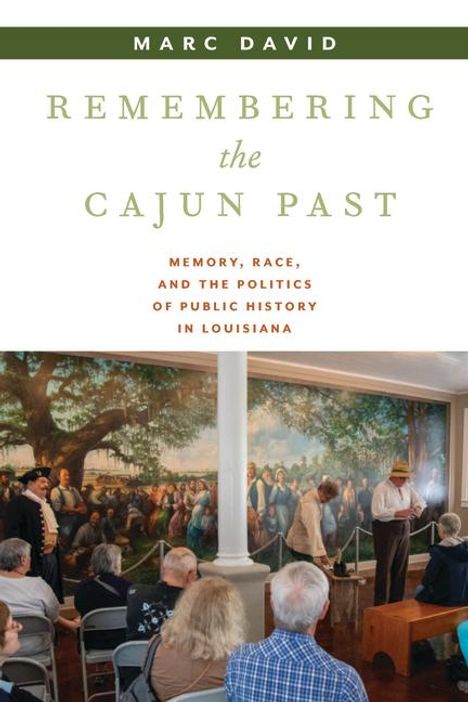Marc David: Remembering the Cajun Past, Kartoniert / Broschiert
Remembering the Cajun Past
- Memory, Race, and the Politics of Public History in Louisiana
(soweit verfügbar beim Lieferanten)
- Verlag:
- University of Massachusetts Press, 12/2025
- Einband:
- Kartoniert / Broschiert
- Sprache:
- Englisch
- ISBN-13:
- 9781625349194
- Artikelnummer:
- 12207042
- Umfang:
- 352 Seiten
- Gewicht:
- 454 g
- Maße:
- 229 x 152 mm
- Stärke:
- 23 mm
- Erscheinungstermin:
- 30.12.2025
- Hinweis
-
Achtung: Artikel ist nicht in deutscher Sprache!
Weitere Ausgaben von Remembering the Cajun Past |
Preis |
|---|---|
| Buch, Gebunden, Englisch | EUR 125,67* |
Klappentext
Exploring how public history creates collective memory of this white ethnic group through memorials
Cajuns arrived in southern Louisiana in the 18th century after the British exiled them from eastern Canada. Also known as Acadians, they retain a unique dialect of French, and their distinctive music, food, and other cultural traits characterized them as an ethnic group. Until the 1960s, authorities viewed them as a serious problem, allegedly blocking the state's progress as they clung to their antiquated ways. Few Cajun residents in the region remembered the remote past of their ancestors, but by the 1970s, organizations ranging from local non-profits to the National Park Service created sites that commemorated their history, such as the Acadian Memorial in St. Martinville, allowing Cajuns to connect their lives to their past and claim it as their own.
In Remembering the Cajun Past , anthropologist Marc David studies the cultural and political dynamics that reconfigured Cajun memory and identity. Focusing on St. Martinville and the Acadian Memorial, he explores how authorities changed their minds about Cajuns and demonstrates how Cajuns' historical memories took shape. Part ethnography and part history, David examines the racial aspects of the Memorial's creation in the wake of the Civil Rights movement and the growth of a new Cajun history, one through which individual Cajuns rejected the label's connotation of "white trash" and embraced belonging within a storied white ethnic group. Based on decades of fieldwork and deep engagement with public history practices, David explores how historical memory and the historic sites that foster it are intertwined with the politics of civic life.


